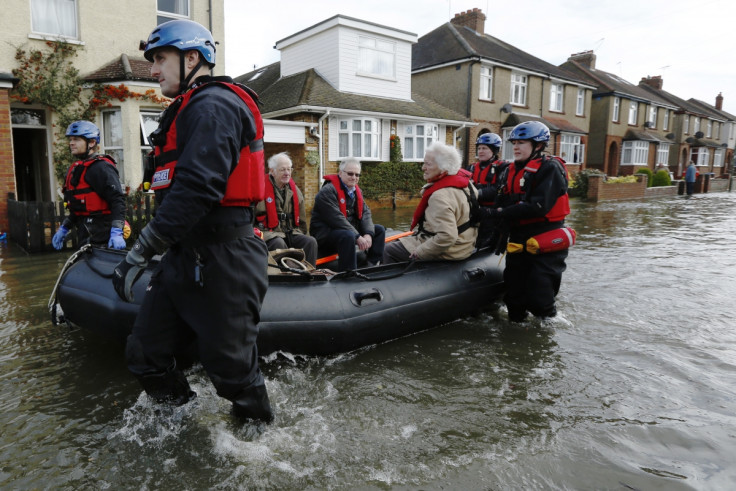UK Death Rates Down 10,000 Due To Warm, Wet Winter

The mortality rate in the UK over last winter hit its lowest level for at least eight years, thanks to the warm, wet weather and lower rates of flu infection.
According to Sky, between 1 December 2013 and 15 March 2014, 10,881 fewer people died in England and Wales than in the previous year, a 6.7% drop in death rates and 5.2% less than the five-year average.
Elderly people in particular are more vulnerable to illness during winter as their immune systems are weaker and less able to cope with cold temperatures, which put a strain on their hearts and make them more vulnerable to flu and chest infections.
Last winter was the fifth warmest on record, with a mean temperature of 5.2C. The warmest UK winter on record was 1989, when the temperature averaged 5.8C.
Wettest winter ever
Met Office statistics also show that 2013 was the wettest winter in almost 250 years, with south-east and central southern England experiencing more than double the average seasonal rainfall, which helped to keep temperatures high.
"The main reason for the mild and wet winter weather is that we have seen a predominance of west and south-west winds, bringing in mild air from the Atlantic - as well as the unsettled and at times stormy conditions," said the Met Office.
Hospitals had feared a surge of patients over winter but in the end coped far better than last year.
"In some ways we got away with it this year," said Dr Simon Eccles, a consultant in emergency medicine at London's St Thomas' Hospital.
"Had we had a particularly cold snap, had we had a large outbreak of flu or winter vomiting virus, most hospitals would have really struggled."
Only £250m extra funding
The UK government had planned ahead for a bad winter, with the Department of Health giving the NHS an additional £250m to recruit more staff for accident and emergency departments and to increase hospital capacity for an expected rise in patients.
Thinktank 2020 does not think that the money was enough.
"Ministers are probably breathing a massive sigh of relief because the amount of extra money they gave was quite small. The weather really worked in the NHS's favour. We had very little snow and almost no ice, particularly in southern England," said Thinktank 2020's CEO Julia Manning.
"People didn't have the falls and fractures they would have done normally, so the demand in A&E just wasn't what was predicted."
© Copyright IBTimes 2025. All rights reserved.






















